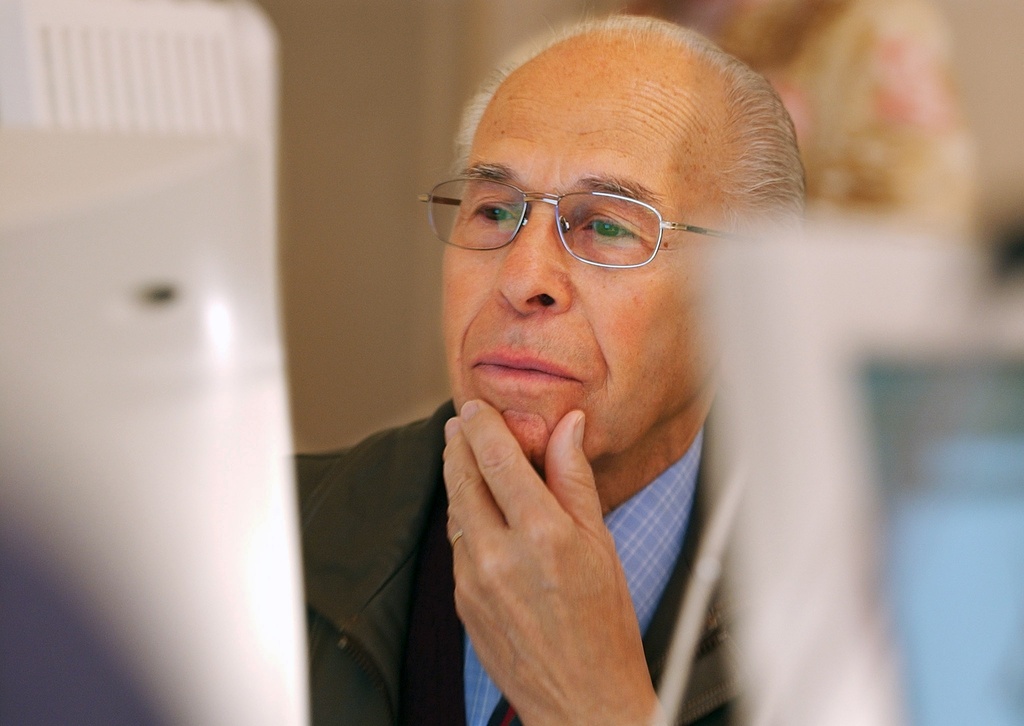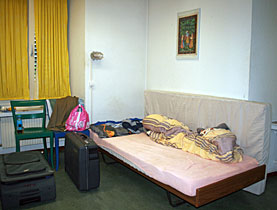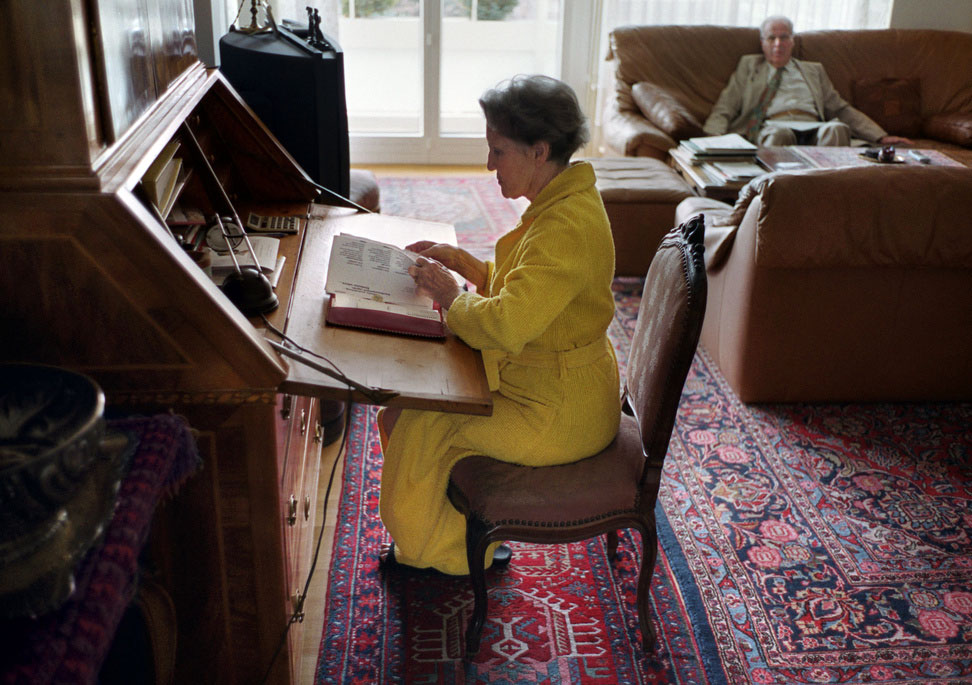Addiction in old age remains a taboo

Old age is no barrier to alcohol and medication abuse, experts say – around a third of alcoholics develop their dependency after retiring.
Among mature women, tranquilliser and sleep tablet abuse are a particular problem. But many people are unaware of the risks or are unwilling to talk about it.
This is why Addiction Info Switzerland and the Zurich Centre for the Prevention of Alcohol and Drug Abuse (ZüFAM) have joined forces to raise awareness of the issue.
Cristina Crotti, co-director of ZüFAM, said that a study, commissioned by the centre, had found that one-third of alcoholics had developed their addiction after the age of 60. For some, retirement could be a dramatic change.
“For many it is linked with less social contact, for some there’s a feeling of emptiness, of pointlessness, they no longer really know how to structure their days,” she told swissinfo.ch.
In addition, there is dealing with death and illness among close family. “Also your own body becomes older, and this becomes noticeable with more pain and chronic illnesses. This can also be a burden,” Crotti said.
Behavioural differences
That there is a potential problem is indicated by figures from the Swiss Health Survey for 2007.
“The older a person is, the more likely they are to use painkillers and sedatives,” said Monique Helfer from Addiction Info Switzerland.
In all, 17 per cent of women over 75 use painkillers or sleeping tablets every day, the survey found. Six per cent take tranquillisers.
There was a high increase in the daily use of painkillers and tranquillisers in the 55-64 year old group for both sexes compared with the last survey in 2002.
As for alcohol, 46 per cent of men over 75 drank daily, compared with six per cent of 25-34 year olds.
Overall, experts have observed that men tend to console themselves with the bottle while women take medication.
This has a lot to do with the fact – and studies have also shown this – that doctors tend to prescribe more medication to women. With men, a physical reason is often looked for, says Crotti. “With women people tend to think more quickly of a psychosomatic problem.”
Medication can also be taken in private, as excessive public drinking by women is still largely frowned upon, she added.
Risks
What many do not know is that alcohol and medication use in old age has its risks.
Drinking has a stronger effect on the elderly because they have less fluid in their bodies than younger people. Their metabolism also works more slowly. This can lead to more falls and driving problems, Crotti said.
Those taking medicines, such as for heart problems, don’t always inform themselves of how these react with alcohol. Nor do people realise that the elderly don’t need so much sleep, so don’t always need tablets, she added.
Crotti said that the study had showed that older people reacted well to information tailored to their needs. This is why her organisation and Addiction Info Switzerland launched special brochures on old age and addiction earlier this month.
One of them is also aimed at relatives and carers; Crotti advocates carer training.
“For example if an old lady’s partner dies, people should observe how this person is coping and recognise early if there is medication or alcohol abuse,” Crotti said. Motivating long-term addicts to get help is also important.
The information should help break addiction taboos, says Helfer. And with the percentage of the elderly growing, she says, “the topic will become more relevant than ever”.
Welcome move
Organisation for the elderly, Pro Senectute, which offers social counselling as part of its services but does not deal with addiction issues directly, said that it was aware of a rise in older people with addiction problems. It therefore welcomed the campaign.
Its social workers often come into contact with older people suffering from dependencies.
“Regular campaigns to reduce taboos makes it easier for the affected individuals and their relatives to accept treatment or social counselling help,” said Marianne Weber, head of social counselling and information, in a statement to swissinfo.ch.
The organisation advises on a national level training for social workers on the issue, as well as prevention work. Voluntary counselling, in cooperation with addiction centres, can be offered on a local level.
Crotti says people should recognise that it is worth helping older people. “Today life expectancy is higher than before and at 60 you are not yet old. You can still live another 30 years.”
Isobel Leybold-Johnson, swissinfo.ch
Research published by the Federal Statistics Office last year showed that people aged at least 64 made up 5.8% of the Swiss population in 1900 and 16.4% in 2007.
The proportion of people aged 80 or older climbed from 0.5% in 1900 to 4.7% in 2007.
In contrast, the proportion of under-20s fell from 40.7% to 21.5% in the corresponding time frame.

In compliance with the JTI standards
More: SWI swissinfo.ch certified by the Journalism Trust Initiative





You can find an overview of ongoing debates with our journalists here. Please join us!
If you want to start a conversation about a topic raised in this article or want to report factual errors, email us at english@swissinfo.ch.